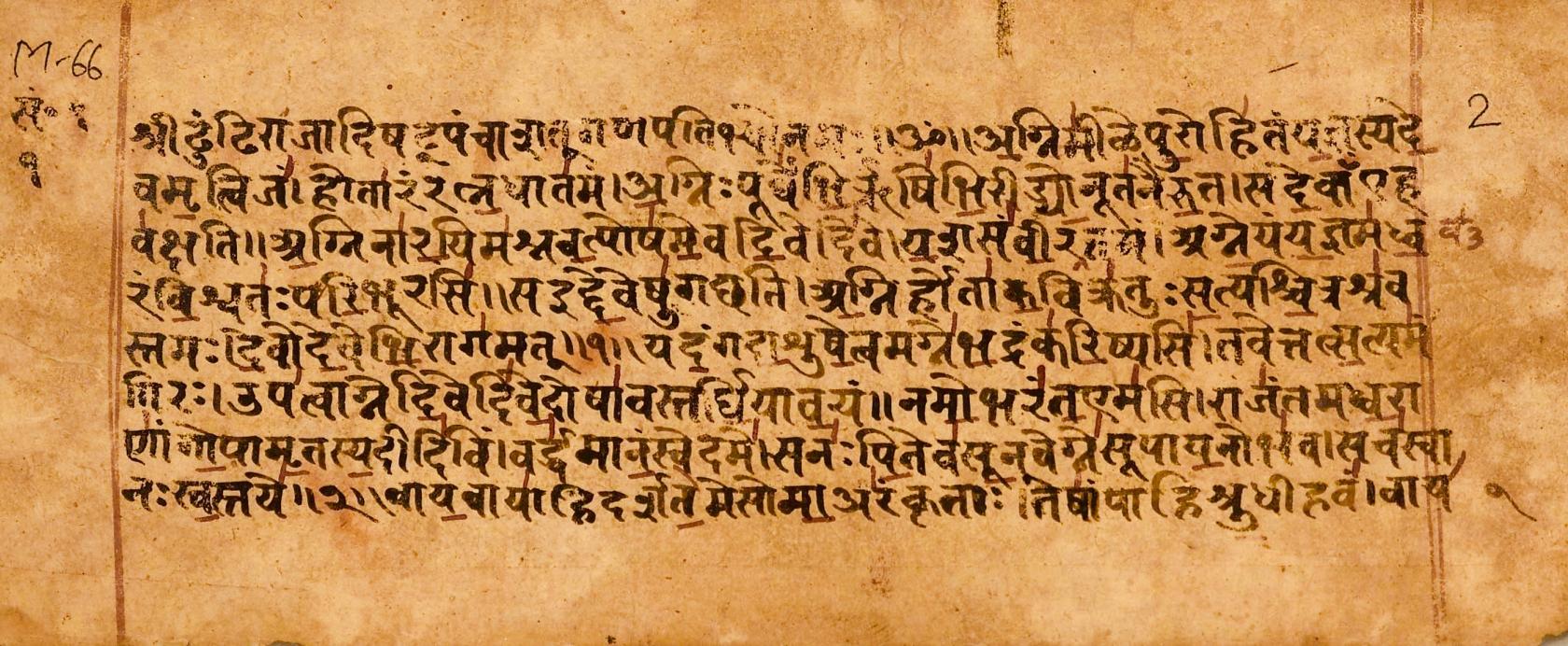Introduction to Vedas
Introduction to the Vedas

I. The Nature of the Vedas
A. Opening Mantras
- Begins with recitation of the first two mantras of Rigveda's Nasadiya Suktam, which explores the origin of the universe.
B. Meaning of 'Veda'
- Derived from Sanskrit root "vid" meaning "to know".
- Veda is a vast body of knowledge concerning:
- Eternal spiritual values
- Principles
- Practices for gainful and happy living
- Revealed to Rishis through deep meditation.
- Preserved and transmitted orally.
C. 'Shruti'
- Vedas are called "Shruti" meaning "that which is heard".
- Considered the highest canonical scripture in Sanatana Dharma tradition.
- Revered as basic scriptures and the fountain head of Indian culture.
- Recognized by UNESCO as a "Heritage for preservation."
D. Western Approach
- Western scholarship often approaches the Vedas as an intellectual and linguistic exercise, lacking the cultural angle.
II. Three Broad Areas Addressed in the Vedas
- The Vedas are broadly categorized into three areas
A. Karma-kanda
- Focus on day-to-day living and how to lead a life from morning to evening.
- Aims to nudge the individual towards purity of mind as they engage in the world.
B. Upasana-kanda
- Focus on contemplation and focus to develop a single pointed mind.
- Includes exercises and practices to develop focus and contemplation.
C. Jnana-kanda
- Focuses on opening the mind and facilitates deeper inquiry.
- Explores oneself, nature, and the universe.
III. Yajna (Sacrifice) in Vedic Living
A. Pictorial Representation
- Yajna is a central ritual in Vedic living
- Altar is the center of the ritual where Aahuti is offered
B. Participants
* **Yajamana:** The main sacrificer.
* **Yajamana Patni:** Yajamana's wife, they are the *Adhikaris*, who are authorized to perform the Yajna.
* **Hotr-gana**: Has a Hota( Captain), and 3 Assistants from the Rigveda.
* **Adhvaryu-gana:** Has an Adhvaryu(head) and 3 assistants from Yajurveda.
* **Udgatr-gana:** Has an Udgata(head) and 3 assistants from Samaveda.
* **Brahma-gana:** Has a Brahma(head) and 3 assistants from Atharvaveda, supervises and does quality control.
-
Roles:
- Each group has specific roles.
- It is sort of a project management structure where each one has distinctive roles.
- Brahma-gana has a supervisory/quality control role
C. Vedas and Yajna Roles
-
Hotr-gana: From Rgveda
-
Adhvaryu-gana: From Yajurveda
-
Udgatr-gana: From Samaveda
-
Brahma-gana: From Atharvaveda


No Comments